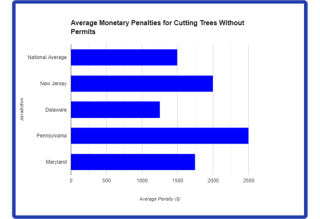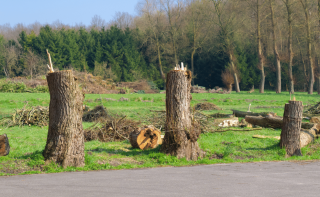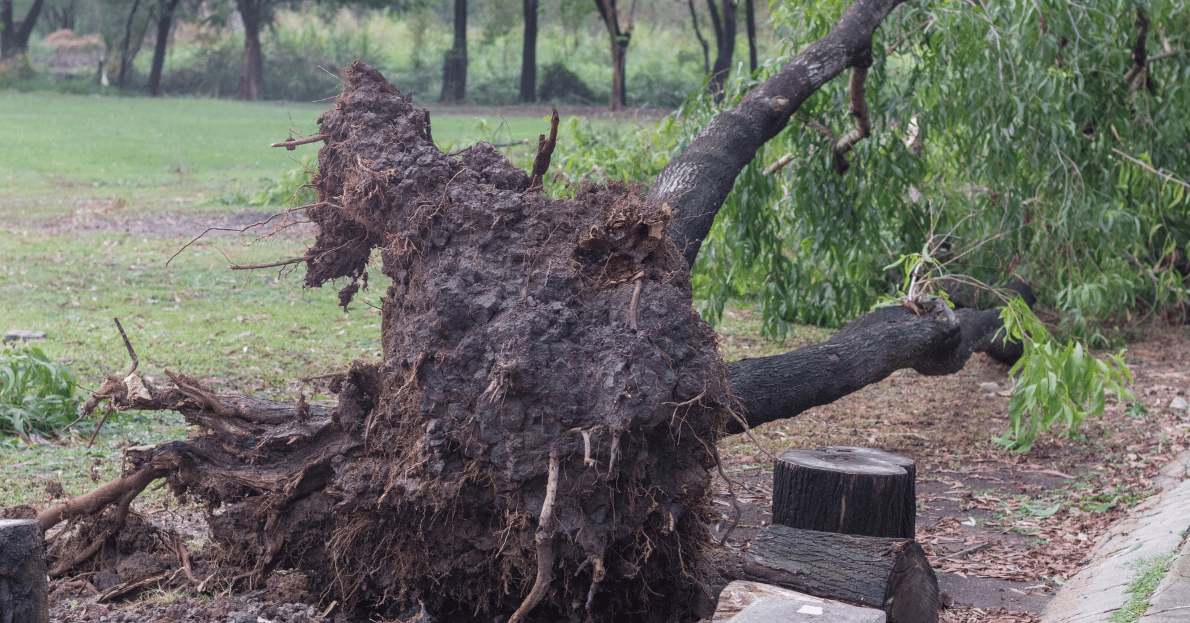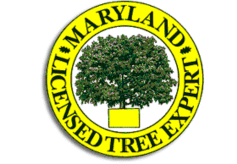
When it comes to tree removal on your property, it's essential to be well-informed about the rules and regulations governing the process. Cutting down a tree without the proper permissions can have serious consequences, including legal penalties. This article will explore the critical aspects of tree removal, including the need for permission, potential lawsuits, and the penalties for cutting a tree without a permit.
Do You Need Permission To Cut Down Trees on Your Property?
Before reaching for the chainsaw, it's crucial to determine whether you need permission to cut down trees on your property. In most cases, the answer is yes. Many local governments require property owners to obtain a permit before removing a tree, especially if it's a significant or protected species.
Understanding Local Regulations:
- Delaware: The state of Delaware mandates that property owners obtain a permit before cutting down any tree with a diameter greater than 6 inches. Failure to do so can result in fines and legal consequences.
- Pennsylvania: Regulations in Pennsylvania vary by municipality, but generally, a permit is required for cutting down trees beyond a specific size. It's essential to check with your local government to understand detailed requirements.
- New Jersey: New Jersey has strict regulations on tree removal, especially in residential areas. Property owners often need a permit for cutting down trees with a diameter greater than 6 inches.
- Maryland: Maryland requires a license for the removal of certain tree species. Regulations can vary, so checking with local authorities before initiating tree removal is advisable.
Can You Sue Someone for Cutting Down Trees on Your Property?
If you find someone cutting down trees on your property without permission, you may wonder if legal action is possible. In many cases, the answer is yes. Unauthorized tree removal can lead to property disputes and potential lawsuits.
Key Considerations:
- Trespassing and Property Damage: Unauthorized tree removal can be considered trespassing, and if it damages your property, you may have grounds for a lawsuit. The damages can include the cost of the tree, any harm caused to the surrounding landscape, and potential legal fees.
- Proving Ownership: To sue someone for cutting down trees on your property, you must establish ownership of the land and the trees in question. Property records, surveys, and witness statements can prove your case.
- Consulting Legal Professionals: If you find yourself in a situation where someone has cut down trees on your property without permission, it's advisable to consult with legal professionals who specialize in property law. They can guide you through the process of seeking compensation for damages.
What Is the Penalty for Cutting a Tree Without a Permit?
Understanding the potential penalties for cutting down a tree without the required permit is vital to making informed decisions about tree removal. Penalties can vary by state, so you must know the regulations in your specific location.
Penalty Breakdown:
- Delaware: The penalty for cutting down a tree without a permit in Delaware can range from fines to legal action. The severity of the punishment often depends on the size and significance of the tree.
- Pennsylvania: Penalties in Pennsylvania can include fines, restoration costs, and, in extreme cases, criminal charges. Municipalities may have specific ordinances governing tree removal.
- New Jersey: New Jersey imposes fines for unauthorized tree removal, and property owners may be required to replace the removed trees or contribute to local reforestation efforts.
- Maryland: Maryland penalties may include fines and restoration requirements. The specific consequences depend on the type and size of the tree removed.
What Trees Can Be Cut Down Without Permission?
While regulations typically require permits for the removal of more giant or protected trees, there are instances where you can cut down trees without explicit permission. Understanding these exceptions is crucial for responsible property management.
Common Exceptions:
- Dead or Diseased Trees: In many jurisdictions, property owners can remove dead or diseased trees without a permit. This is often considered necessary for the surrounding environment's safety and well-being.
- Invasive Species: Some areas permit the removal of invasive tree species without a permit to protect native flora and fauna.
- Emergency Situations: Emergency removal may be allowed without prior permission in cases of imminent danger, such as a tree posing an immediate threat to life or property.
Conclusion
Cutting down a tree on your property is a task that requires careful consideration of local regulations. Whether you need a permit or face potential legal action or risk penalties depends on various factors, including your location and the type of tree in question.
Before taking any action, it's advisable to consult local authorities and, if necessary, seek professional advice. If you need tree care services in Delaware, Pennsylvania, Maryland, or New Jersey, consider reaching out to Strobert Tree Services, leaders in the field committed to responsible and informed tree care practices.











